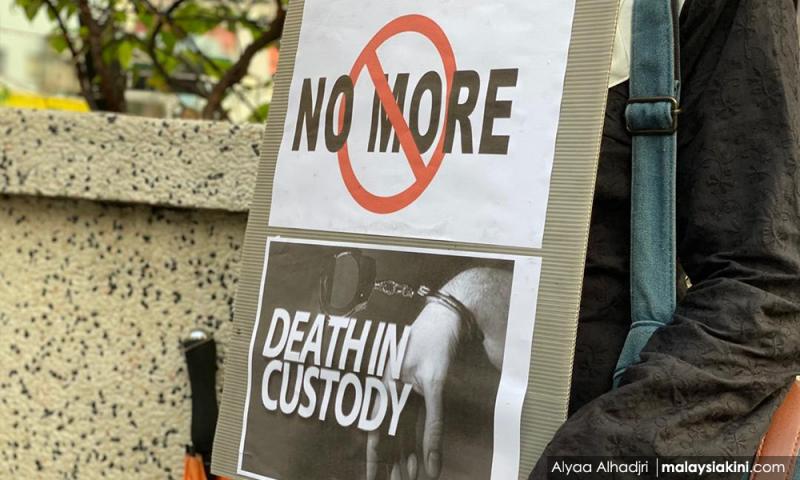LETTER | Custodial deaths preventable if we care more
LETTER | In Australia, an Aboriginal man, David Dungay Jr, died in prison in 2015 after being pinned down by office guards and injected with a sedative to stop him from eating biscuits. He then yelled, “I can’t breathe”. To date, a report records 474 Aboriginal and Torres Strait Islander people (a minority group in Australia) having died in custody.
This case sounds a little too familiar. It mirrors the case of the late African-American George Floyd, whose life was taken away by the unscrupulous hands of police restraint, sparking resilient global protests “Black Lives Matter'' against systemic racism and police brutality in the US. George Floyd, too, yelled “I can’t breathe” under the guard’s hands.
In the US, black people account for three percent of the population but comprise 8 percent of custodial deaths.
Similarly, in India, the latest report by a human rights body records 1,731 people died in custody in 2019 mostly of vulnerable groups namely the Dalits and Muslims.
And today, Malaysia is no exception. We are awakened by the circulating awareness of the recent deaths of three Malaysian Indian men in the custody of the Royal Malaysian Police Force (PDRM). Ethnic Indians make up less than 7 percent of Malaysia’s population but account for almost a quarter (23 percent) of officially reported deaths in police custody.
Looking at the statistics of custodial deaths, we can spot a significant pattern. It is sad to say that custodial deaths normally happen to indigenous or minority groups of the society.
This should signal danger. This should signal the rampant illness in our society today, the illness of a cold-blooded play of power, privilege and class.
Perhaps, the solution does not lie in calling out the watchmen in PDRM “racists” that could cure the illness.
But it is the voice of racial majorities speaking out against injustices faced by minorities.
It is realising the lack of duty of care to persons from racial minorities in custody because they are deemed unimportant and useless to the society - as this was the case to Aboriginals in Australia.
It is realising that a person’s liberty in custody, though can be restricted by procedures in criminal justice, cannot be extended to mean the end of one’s life and purpose
It is pushing for rigorous training of the police force leading up to the establishment of the IPCMC.
It is the implementation of rigorous medical checkups for any suspects once arrested. If any medical illness is found, proper medical treatment should be administered immediately.
It is not prosecution against the police, but against the perpetrator who doesn't follow the rules and procedures, who doesn't adhere to codes of conduct and training, who doesn’t respect the policies and mottos of the law enforcement to serve with courage, compassion and integrity.
Policing is a noble profession. It remains noble with the highest standards. There is more to policing than merely putting handcuffs on suspects. The police are the bystanders we normally call first for help.
Let’s not let any more repeated custodial deaths happen that would consequently shatter the public confidence and public trust in the police force. Public confidence and public trust mean all of the public - not only confined to the Malays, Chinese or merely Indians.
But all procedures, guidelines and recommendations would be rendered useless if no one cares, if no one takes laws seriously, if no one takes life seriously. Deaths in custody are not uncommon - but they are preventable if we cared more.
The views expressed here are those of the author/contributor and do not necessarily represent the views of Malaysiakini.
RM12.50 / month
- Unlimited access to award-winning journalism
- Comment and share your opinions on all our articles
- Gift interesting stories to your friends
- Tax deductable
